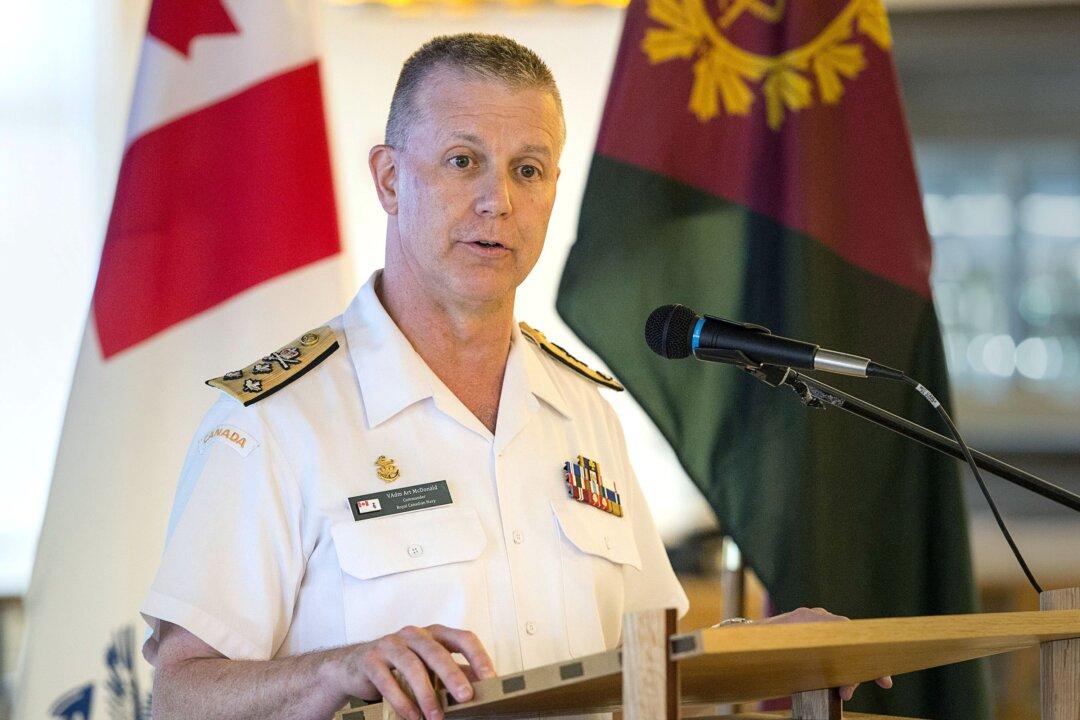Admiral Art McDonald, the first naval commander to lead the Canadian military in decades, will inherit some challenges in his new role, not the least of which is the ongoing effort to build a fleet of new warships, which has been fraught with delays and cost overruns.
McDonald took the reins from Gen. Jonathan Vance on Jan. 14 as the next chief of the defence staff in a ceremony that was kept low-key due to the pandemic.





